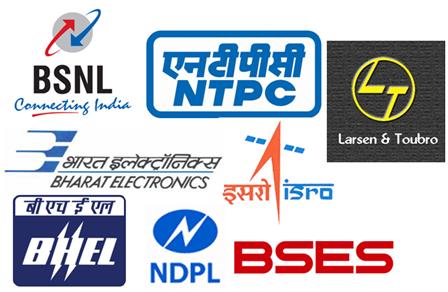 Featured Sector
Featured Sector

 Featured Sector
Featured Sector


The power sector is responsible for the production and delivery of electric energy (electricity) in sufficient quantities for commercial and residential consumption through a grid connection. Power is one of the most vital factors for the socio-economic development of the country. Though the majority of generation, transmission and distribution capacities are with the public sector companies or the state electricity boards, the private sector participation has also been seen in the recent years.
Major public sector companies are the National Thermal Power Corporation (N.T.P.C), National Hydroelectric Power Corporation (N.H.P.C), and Power Grid Corporation of India. Reliance Power Limited, GMR Infrastructure Ltd., DLF Power Limited, Birla Power Solutions Ltd., TATA Power Company Ltd. are some of the private companies that have invested many of the large electricity generation projects.
According to a report, the total demand for electricity in India is expected to cross 950, 000 MW by 2030. With the increasing population and higher standards of living, the country is expected to add up to 113 GW of installed capacity within next five years. The exponential boom in the industry coupled with the large resource gap provides for plenty of opportunities for the skilled and trained manpower from the perspective of professional growth and development in this sector.
Career Scope
A four-year degree in electrical engineering equips a student to work in the power sector with the knowledge of transmission and generation of electrical power, electrical circuit design, electronics, instrumentation, control system, understanding electrical and electronic networks. One, who wants to study further after completing B.E. /B. Tech, can pursue an M. Tech program offered by IITs and few other engineering colleges in the country.
Manufacturing units such as electricity boards, power corporations, hydro-electric, atomic and thermal power plants are continuously in the need of electrical engineers for their projects. Some of the premier educational and research institutions of the country intake electrical engineers- either as graduate engineer trainees or management trainees to work on the research projects.
Who can join?
Students who possess strong logical and analytical skills along with an attention to detail have strong chances to do well in the power sector. An electrical engineer working in this sector should be capable of moulding the current technologies and methodologies as per the changing technological scenario of the market.
Job Responsibilities:
An electrical engineer working in the power sector is either involved in the manufacturing /installation jobs or in the operating jobs. Those deployed in the manufacturing/installation of electrical systems and equipments are often involved in designing automated methods to control electrical processes, methods to generate, distribute and manage electricity, updating existing specifications of equipments.
Engineers working in the operating jobs often work as power plant operators or distributors. Power plant operators control machines such as the boilers, turbines, generators and the auxiliary equipments in power-generating plants. Plant distributors are responsible for distributing the power demands among generators, monitoring instruments to maintain voltage and regulating electricity supply from the plant to the industrial substations. These industrial substations then distribute electricity to the residential units via distribution lines.
Role of a power plant operator offers a number of challenges ranging from identification of a problem to finding out appropriate technical solutions.
Skills required: